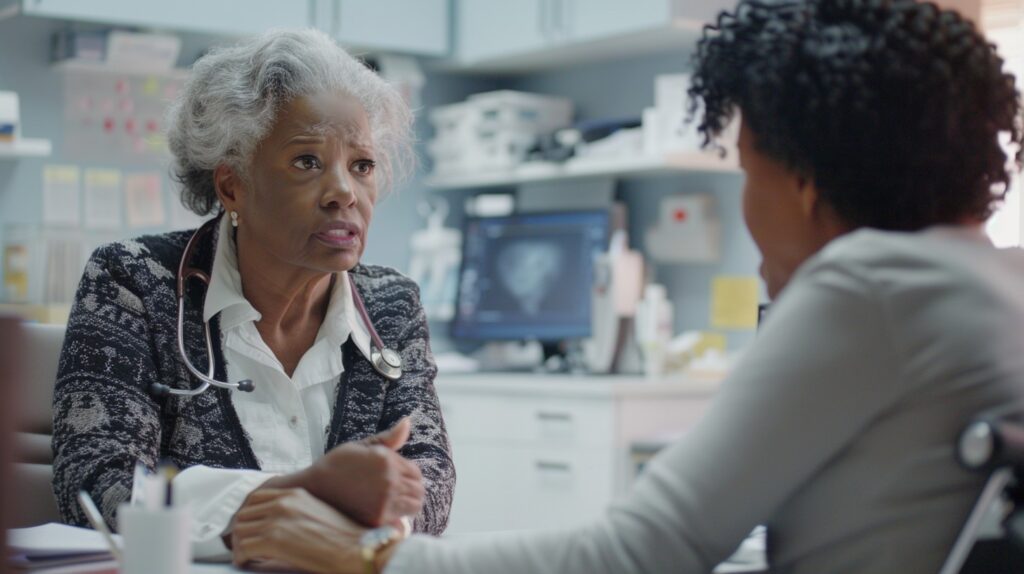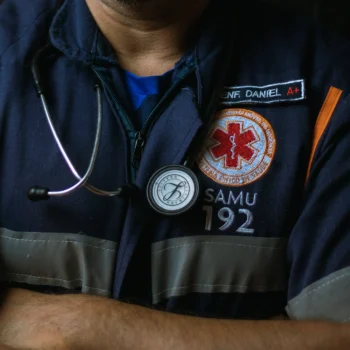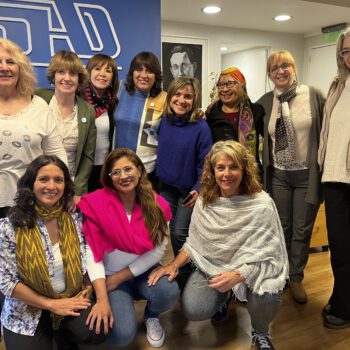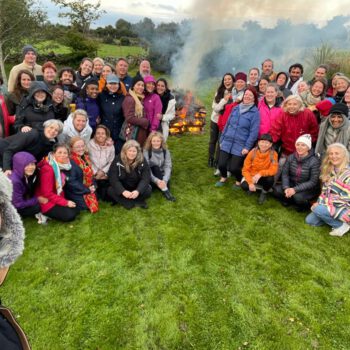Aisling is a Family Doctor (GP) who merges her experience in addictions and homelessness, her role as a Health/Life Coach, and her training as a Compassionate Inquiry® Practitioner to help people heal by connecting to their authentic selves, to the present moment, and to each other. She was also an Honorary Clinical Research Fellow for Imperial College London’s Psilopain trial (Psilocybin for Fibromyalgia).
This post references a short excerpt of Aisling’s story of transformation and healing through Compassionate Inquiry.® Listen to her full interview on The Gifts of Trauma Podcast.

When I first qualified as a general practitioner (GP) I ran a clinic for patients who injected heroin. All of these patients had high levels of childhood adversity. Many also had chronic pain, mental or physical health issues. In the clinic we stabilized them on methadone, helped them with housing and nutrition, and treated their blood bone viruses. With this support these patients became more stable, but once they stabilized, their emotional and chronic physical pain, the traumas they’d used heroin to repress, came to the surface.
As a GP, I wasn’t trained to treat their mental or chronic health pain. Their psychiatrists wouldn’t address their chronic pain. And their chronic pain clinics wouldn’t address their psychiatric problems. The healthcare system treats mental, physical and chronic pain separately, even when they occur simultaneously in a single human being. This doesn’t make sense, but that’s how the system is set up. Issues also arose for them that the system struggles to categorize or address at all. For example…
In my GP clinic, 66% – 75% of my patients presented with problems like fibromyalgia or chronic fatigue. I wasn’t trained to treat these chronic mind-body conditions. As a result, many of these patients didn’t improve, despite being on medication for years, or lifetimes. Back then I often wondered, what are we missing? Why did I train for ten years to become a GP who is unable to help so many patients?
At that same time I was struggling with my own anxiety, insomnia and physical pain. The stress, busyness and pressure of my work exacerbated all of that. I was seeing 40 or more patients a day. I was in a state of overwhelm. And being unable to help many was so frustrating, my nervous system was constantly dysregulated. I noticed later that almost everybody in the medical system is dysregulated, from the receptionists to the nurses, managers and doctors. This is the current state of our healthcare system.
Reading In the Realm of Hungry Ghosts opened up a world of possibility for me. After looking more deeply into Gabor’s work, I went to one of his workshops where I began to understand myself and experience shifts within myself. Afterwards, I was able to regulate myself better. I began to see the mind-body as a whole. It made sense that the root of many patient issues was childhood trauma or adversity. And it was with this realization that I began to make real inroads with my patients.
Many doctors, and almost all GPs, are under-resourced and overwhelmed by all we have to do within a system where there’s far too much to do. GPs often problem-solve, which is important, but this ‘fix-it’ perspective makes it really difficult for us to be present and self-reflect. Another barrier to bringing the mind-body connection into the medical model is that many doctors see it as yet something else they have to learn, to do, to incorporate into a job that’s already impossibly full. Much to my surprise, my personal experience contradicted this perspective. When I began to heal my own anxiety, pain, and understand my own mind-body, I was able to get further with patients, by doing less, which was very rewarding.
In medicine, there are two approaches. One approach is to question the patient, because we can become frustrated with patients who present again and again with symptoms we can’t explain. The other approach is to question the medical model. If patients are not getting better and we aren’t able to help them, perhaps there’s a deficiency in the medical model. And while I’m very supportive of the medical model, I think a big piece is missing. So I started to question it and to envision what a truly trauma-informed healthcare system would look like.
Initially, we will stop seeing symptoms as problems to eliminate and instead view them as clues to the patient’s lived experience from conception, though birth and their early years We will also take into account the experiences of their ancestors and the cultures they grew up in. And by bringing this perspective to our patients, we’ll not only help them understand themselves better, but empower and support them to find their own solutions.
What really struck me as key in Compassionate Inquiry® are its assertions that:
• Everyone has an essence that can’t be broken, an essence that’s part of who we all are
• The difficulties that we have in our lives are, in fact, related to our adaptations to early trauma
In these views, Compassionate Inquiry® differs radically from the medical model. Adopting this viewpoint changed how I saw my patients and their symptoms. Embedding this understanding into the education of medical students has the potential to be hugely transformative for patients. It doesn’t need to take more time and it doesn’t require doctors to do more. In truth, it often means that we do less.
One of the biggest changes I would make in a trauma-informed healthcare system is to offer this healing work to doctors. It is sorely needed, plus it offers a huge opportunity. When doctors are healed and regulated, we’re better able to support our patients’ healing. This is empowering for our patients and for us as doctors, as we’re much more fulfilled in our work. From a pragmatic point of view, making this change will decrease our workload, because if we actually heal people, we’re not just managing their symptoms, we’re helping their symptoms resolve. Plus, when patients understand themselves from a mind-body perspective, they’re equipped to discern why they are struggling, which will avoid subjecting them to unnecessary tests and investigations.
So yes, much change is needed in healthcare, but it’s largely in our outlook and in who we’re being when we’re sitting with our patients, not what we’re doing. Doing is important, because if a patient comes in with rectal bleeding, we need to take action to ensure it’s not something like colorectal cancer. So doing is really important, but often, who we’re being is even more important. And if we aim to be clear mirrors for our patients, we first need to heal ourselves.
– – –
The Gifts of Trauma is a weekly podcast that features personal stories of trauma, healing, transformation, and the gifts revealed on the path to authenticity. Listen to the interview, and if you like it, please subscribe and share.




Comments are closed.